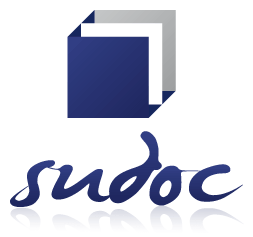El giro lingüístico-pragmático en Jürgen Habermas: hacia una pragmática universal
The Linguistic-Pragmatic Turn in Jürgen Habermas: towards a Universal Pragmatics
Abstract
The present work it will show the linguistic-pragmatic turn in the communicative theory of Jürgen Habermas. To do this, in the first place a historical context is presented on the linguistic turn and the pragmatic perspective. In this context, Habermas proposes to replace the paradigm of consciousness by one of linguistic stamp in the perspective of Wittgenstein and the speech act theory, in view of the development of a consensual theory that leads to Universal Pragmatics, thanks to a theory of language and communicative action in the context of an ideal speech situation.
Downloads
References
APEL, Karl-Otto, El camino del pensamiento de Charles S. Peirce, trad. Ignacio Olmos y Gonzalo del Puerto Gil, Madrid, Editorial Visor, 1997, pág. 12
WITTGENSTEIN, Ludwig, Tractatus Logico-Philosophicus, trad. Jacobo Muñoz e Isidoro Reguera Pérez, Madrid, Alianza Editorial, 2002
HEIDEGGER, Martin, El ser y el tiempo, trad. José Gaos, México, FCE, 2005.
RORTY, Richard, El giro lingüístico, trad. Gabriel Bello, Barcelona, Ediciones Paidós, 2012, pág. 115.
GÖDEL, Kurt, Obras completas, trad. Jesús Mosterín, Madrid, Alianza Editorial, 2006, pág. 53-87.
GOLDSTEIN, Rebecca, Gödel. Paradoja y vida, trad. Víctor Úbeda, Barcelona, Antoni Bosch, 2007, pág. 169.
WITTGENSTEIN, Ludwig, Conferencia sobre ética, trad. Fina Birulés, Barcelona, Ediciones Paidós, 1989, pág. 43.
WITTGENSTEIN, Ludwig, Investigaciones filosóficas, trad. Alfonso García Suárez y Ulises Moulines, Barcelona, Editorial Crítica, 2008, pág. 125.
CORTINA, Adela, Ética mínima. Introducción a la filosofía práctica, Madrid, Tecnos, 2010, pág. 84 y ss.
HABERMAS, Jürgen, Theorie des kommunikativen Handelns Band I, Frankfurt, Suhrkamp, 1981, pág.
AUSTIN, John L, Cómo hacer cosas con palabras, trad. Genaro R. Carrió y Eduardo A. Rabossi, Barcelona, Ediciones Paidós, 2010, pág. 51.
LAFONT, Cristina, “Dilemas en torno a la verdad”, Theoria, 23, 1995, pág. 109-124.
PEÑA, Carlos, “Habermas y el problema de la verdad”, DOXA, 32, 2009, pág. 585-592.
HABERMAS, Jürgen, Teoría de la acción comunicativa: complementos y estudios previos, trad. Manuel Jiménez Redondo, Madrid, Ediciones Cátedra, 2011b, pág. 299 y ss.
APEL, Karl-Otto, Transformation der Philosophie Band II, Frankfurt, Suhrkamp, 1971, págs. 406 y ss.
RAWLS, John, Teoría de la Justicia, trad. María Dolores González, México, FCE, 2006, pág. 62
DRYZEK, John S., Discursive democracy, Cambridge, Cambridge University Press, 1990, pág. 36
RAHMAN, Shahid y REDMOND, Juan, “Armonía dialógica: tonk, teoría constructiva de tipos y reglas para jugadores anónimos”. Theoria, 31, 2016, pág. 27-53.
DRYZEK, John S., Deliberative Democracy and Beyond, Oxford, Oxford University Press, 2000, pág. 1
RORTY, Richard, La filosofía y el espejo de la naturaleza, trad. Jesús Fernández Zulaica, Madrid, Ediciones Cátedra, 2001.
APEL, Karl-Otto, Paradigmas de filosofía primera, trad. Andrés Creiler y Miguel Mailluquet, Buenos Aires, Prometeo Libros, 2013.































